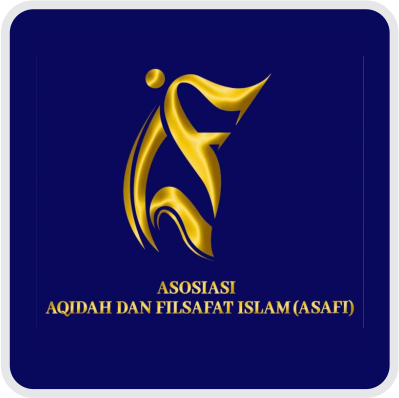Ismail Raji Al-Faruqi's Ecotheology: The Concept of Environmental Sustainability Faith-Based
DOI:
https://doi.org/10.30983/itr.v1i2.7455Abstract
This article explains an ecotheological view from Ismail Raji Al-Faruqi in overcoming the problem of environmental damage. This research uses literature or document study methods in qualitative research with interpretive analysis. The data used is primary and secondary. Primary data was taken from the work of Ismail Raji Al-Faruqi. Secondary data comes from literature relevant to Ismail Raji Al-Faruqi. Ecotheology, according to Ismail Raji Al-Faruqi, is First, the environmental crisis according to Ismail Raji Al-Faruqi is an environmental situation where natural ecosystems and the environment on earth are threatened due to negative factors caused by humans, who do not realize that humans and nature are interdependent. Second, the Islamic view of the environment is that the environment is God's work, which was created as a place for humans to live, grow, and develop, as well as carry out their obligations as God's creatures. Third, the concept of faith-based environmental sustainability, according to Ismail Raji Al-Faruqi, is maintaining the state of the natural environment by making belief in God the foundation for treating the environment as God has commanded.
References
Abdillah, J. (2014). Dekonstruksi Tafsir Antroposentrisme: Telaah Ayat-Ayat Berwawasan Lingkungan. KALAM, 8(1), 65–86. https://doi.org/10.24042/klm.v8i1.168
Abdurrahmansyah. (2002). Sintesis Kreatif Pembaruan Kurikulum Pendidikan Islam Ismail Raji Al-faruqi. Global Utama Pustaka.
Akib, M. (2014). Hukum Lingkungan Persepektif Global dan Nasional. Rajawali Pers.
Al-Faruqi, I. R. (1992). Islam Sebuah Pengantar. Terj. Luqman Hakim.
Al-Faruqi, I. R. (1995). Tauhid. Pustaka.
Ariani. (2010). Lingkungan Hidup dalam Perspektif Islam. Fakultas Ushuluddin.
Hanafie, R., & Srdm, S. (2007). Filsafat Ilmu dan Metode Penelitian. ANDI.
Kartanegara, M. (2007). Mengislamkan Nalar: Sebuah Respon terhadap Modernitas. Penerbit Erlangga.
Keraf, A. S. (2010). Etika Lingkungan Hidup. Kompas.
Kreapy, F. (2019). Ekologi dalam Perspektif iman Kristen: Mengungkapkan Permasalahan Ekologi Indonesia. Jurnal SIAP, 8(1).
Larosa, A. (1993). Misi Sosial Gereja. Yayasan Kalam Hidup.
Madjid, N. (2006). Ensiklopedia. Mizan.
Mufid, S. A. (2010). Ekologi Manusia dalam Perspektif Sektor Kehidupan dan Ajaran Islam. PT. Remaja Rosdakarya.
Muhammad, S. (2000). Mendidik Generasi Baru Muslim. Pustaka Pelajar.
Napitulu, D. S. (2017). Esensi Alam Semesta Perspektif Filsafat Pendifdikan Alam. Tazkiya: Jurnal Pendidikan Islam, 6(1), 1–15.
Rozi, S., & Taufik, Z. (2020). Adaptation of Religion and Local Wisdom in Global Environmental Issues in Indonesia. Religious: Jurnal Studi Agama-Agama Dan Lintas Budaya, 4(3), 191–203. https://doi.org/10.15575/rjsalb.v4i3.9593
Shihab, M. Q. (1992). Membumikan Al-Qur’an: Fungsi dan Peran Wahyu dalam Kehidupan Masyarakat. Mizan.
Soerjani, E., & Al., M. (1987). Lingkungan: Sumber Daya Alam dan Kependudukan Dalam pembangunan. UI Press.
Srijders, A. (2002). Antropologi Filsafat Manusia. Kanisius.
Supian, S. (2018). Krisis Lingkungan dalam Perspektif Spiritual Ecology. Jurnal Keluarga Sehat Sejahtera, 16(1), 72–89.
Taufik, Z. (2015). Dialektika Islam & Humanisme: Pembacaan Ali Syariati. Onglam Books.
Voll, J. O., & Esposito, J. L. (2002). Tokoh Kunci Gerakan Islam Kontemporer. PT. Raja Grafindo Persada.
Downloads
Published
How to Cite
Issue
Section
Citation Check
License
Copyright (c) 2023 Adli Dzil Ikram

This work is licensed under a Creative Commons Attribution-ShareAlike 4.0 International License.


